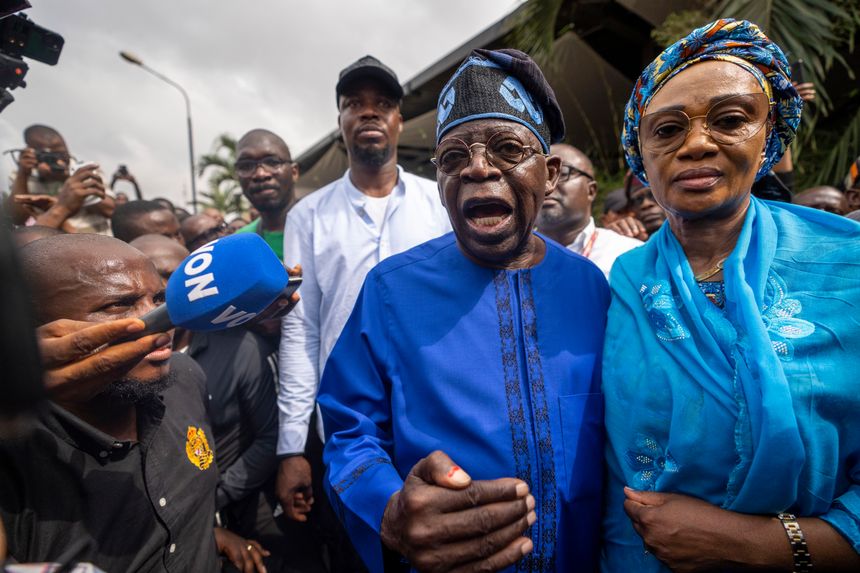
-
Published: 01 March 2023

Nigerian election officials announced the victory of the ruling party candidate Bola Tinubu in the Nigerian presidential election on early March 1, 2023.
However, the two main opposition candidates had a different opinion, as the two rivals in the elections demanded a re-vote, as there were complaints about the time it took to count the votes.
Edited by| Tony Wild
Africa section - CJ journalist
ABUJA, Nigeria- 1 march 2023
The overnight announcement was likely to lead to a court challenge by his main opponents Atiku Abubakar and Peter Obi. Abubakar also finished second in the last vote in 2019, then appealed those results before his lawsuit ultimately was dismissed.
On Tuesday, the two leading opposition parties demanded a revote, saying that delays in uploading election results had made room for irregularities. The ruling All Progressives Congress party urged the opposition to accept defeat and not cause trouble.
Tinubu received 8,794,726 votes, while Abubakar came in second with 6,984,520. Obi, the third-place finisher, got 6,101,533 votes, according to the results announced live on television by the Independent National Electoral Commission.
The announcement came after 4 a.m., but celebrations already had started late Tuesday at the ruling party’s national secretariat where Tinubu’s supporters had gathered in anticipation of his victory.
“None of the others matches his record!” said Babafemi Akin as he chatted excitedly about the prospects of a Tinubu administration. “I am sure he will do well.”
The parties now have three weeks to appeal results, but an election can be invalidated only if it’s proven the national electoral body largely didn’t follow the law and acted in ways that could have changed the result.
The Supreme Court of Nigeria has never overturned a presidential election, though court challenges are common, including by outgoing President Muhammadu Buhari, who doggedly fought his past election losses for months in vain.
Observers have said Saturday’s election was mostly peaceful, though delays caused some voters to wait until the following day to cast their ballots. Many Nigerians had difficulties getting to their polling stations because of a currency redesign that resulted in a shortage of bank notes.
